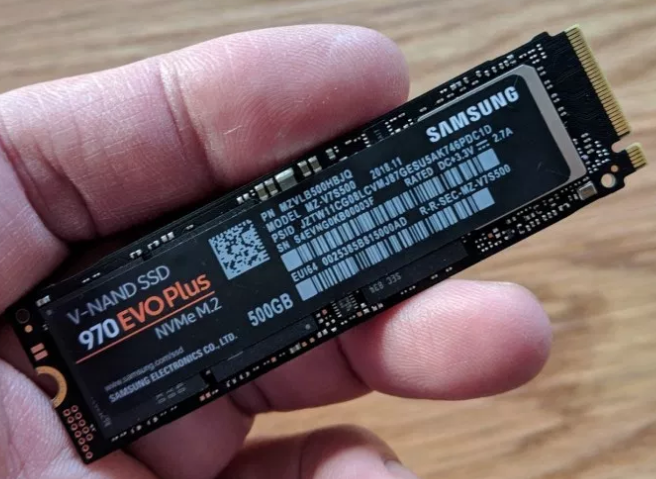
We go through cycles of development in web hosting with upgrades in Internet speeds, CPU proficiencies, operating system enhancements, memory improvements, motherboard advancements and so on. Among the more recent has been the introduction of PCIe NVMe SSD storage devices.
When SSD drives hit the market, they dramatically improved both latency and response times over mechanical HDD drives, but they still shared a SATA interface. In multiple benchmarks, most noticeably I/O performance, PCIe NVMe outperforms SSD drives by as much as six times.
In contrast to HDD or SSD solutions, PCIe NVMe applications are geared for performance
Where does PCIe NVMe excel? It dramatically outperforms SSD in sequential read, sequential write, random read IOPS and random write IOPS. If your organization runs I/O intensive operations, this difference will be instantly noticed by your consumers.
When I contract for web development services, a good number of prospects tell me they want their new websites to have that WOW factor. They want their site to POP. Add that Google uses site speed in it’s ranking algorithms, you’ll also rank higher in SERPS by default. It’s a win-win for your clients and your organization.
How fast is PCIe NVMe using an analogy?
Putting the speed of PCIe NVMe in terms of distances, compare these statistics. In the same amount of time, a 15K HDD (a fairly fast mechanical disk drive) could cover one hundred yards, a NAND Flash SSD drive could finish a marathon. That’s significant and that’s why for other than high storage solutions, SSD became very popular. The original drawback was price, but once prices fell enough for mass production of quality SSD drives, HDD became a thing of the past.
Enter PCIe NVMe – in that same amount of time, it could travel the United States from the Atlantic to the Pacific … and back. Try to envision that in terms of website performance.
NVMe can run in SATA mode
Here’s the kicker. NVMe can run in SATA mode and some providers will advertise their NVMe solutions without telling you whether their drives are PCIe based or SATA based. There is a difference, and if you’re shopping for performance-based solutions, this is a query you should ask of potential web hosting providers. Under-performing NVMe devices may be running on a SATA interface. SATA is a protocol that was developed primarily for HDD devices and while it’s a protocol still widely used, it’s not the future of web hosting, rather rapidly becoming the past, much like vinyl records.
Why is PCIe NVMe so much better for I/O based operations?
PCIe NVMe reduces I/O overhead because it only requires a single message for 4KB transfers versus two. When your server needs to process boatloads of concurrent disk I/O requests, this helps increase server speed. So many consumers base solutions on initial hard dollar savings, but performance increases factor into substantial soft dollar savings over the long term.
What others in the web hosting industry are saying about PCIe NVMe
- It seems queries about PCIe NVMe are limited simply because the average consumer doesn’t know enough about the benefits of NVMe, especially regarding I/O operations.
- Many times, SSD solutions are selected simply because it’s a known technology that produces pretty good improvements over HDD solutions.
- The typical application either is not I/O intensive or PCIe NVMe doesn’t fit their budget
- As long as consumers continue to express interest in SATA solutions, providers are going to offer those solutions.
- Compatibility is a real issue, especially when considering hardware that has native support for NVMe.
- PCIe NVMe is faster whether you’re looking at a specification sheet or deploying them in production. If you load up on SSD’s you might approach IOPS and MB/sec speeds, but not latency.
U.2 vs. M.2 vs. SATA Express Interface Comparison & Speeds
Referencing the hardware guide on Gamers Nexus, they’ve posted an excellent article about U.2 and M.2 form factors versus SATA Express interface comparisons and speeds. If you’re a gamer, this may have been written in 2016, but it’s still first-rate stuff. One key point they’ve made is, “SATA Express will become a dead and abandoned standard in short order, as the industry continues to ignore its existence and moves fully to M.2 and U.2 interfaces. SATA Express cannot communicate through 4 PCI-e lanes.” Which essentially means if you’re pursuing an enhanced gaming experience, you might want to read their article.
BROUGHT TO YOU BY PROLIMEHOST
We’ve been in the web hosting industry for over a decade, helping hundreds of clients succeed in what they do best and that’s running their business. We specialize in Virtual Private Servers (VPS) and dedicated servers, with data centers in Los Angeles, Denver & Singapore.
VPS SERVICES: LIGHTNING FAST SSD VIRTUAL SERVERS
Our Virtual Private Servers all feature high performance Xeon processors and SSD storage in a RAID10 configuration to optimize your server’s performance, which dramatically enhances visitor experiences on your site.
That speed is backed by unparalleled 24/7 support, featuring both outstanding response AND resolution times to maximize your uptime.
Now is the time to join the ProlimeHost virtual private server revolution.
DEDICATED SERVERS: BACKED BY A 99.9% SLA NETWORK UPTIME GUARANTEE
We only use enterprise-class hardware in our dedicated servers and offer a four (4) hour hardware replacement. Throw in IPMI for remote management, support for public and private networks, free operating system (OS) re-installs, and SATA, SAS & SSD (including NVMe) storage. Call 1-877-477-9454 or contact us. For everything from gaming, AMD and GPU servers to cheap dedicated servers, we’re here to help.
ASIA OPTIMIZED SERVERS: IMPROVING CONNECTION SPEED AND QUALITY
Procuring an Asia optimized server improves the connection speed and quality between the server and the users in Asia or China. This can reduce latency, packet loss, jitter, and bandwidth issues that can affect the performance and reliability of the server and the applications hosted on it. For more information, please call 1-877-477-9454 or contact us.





